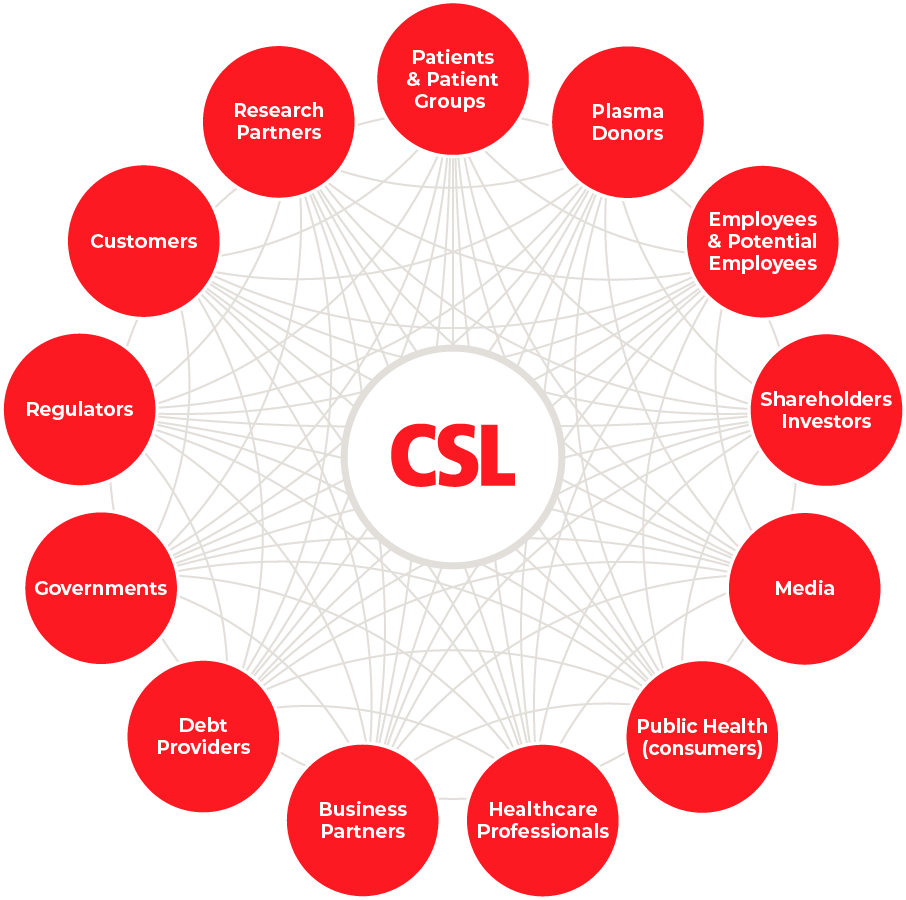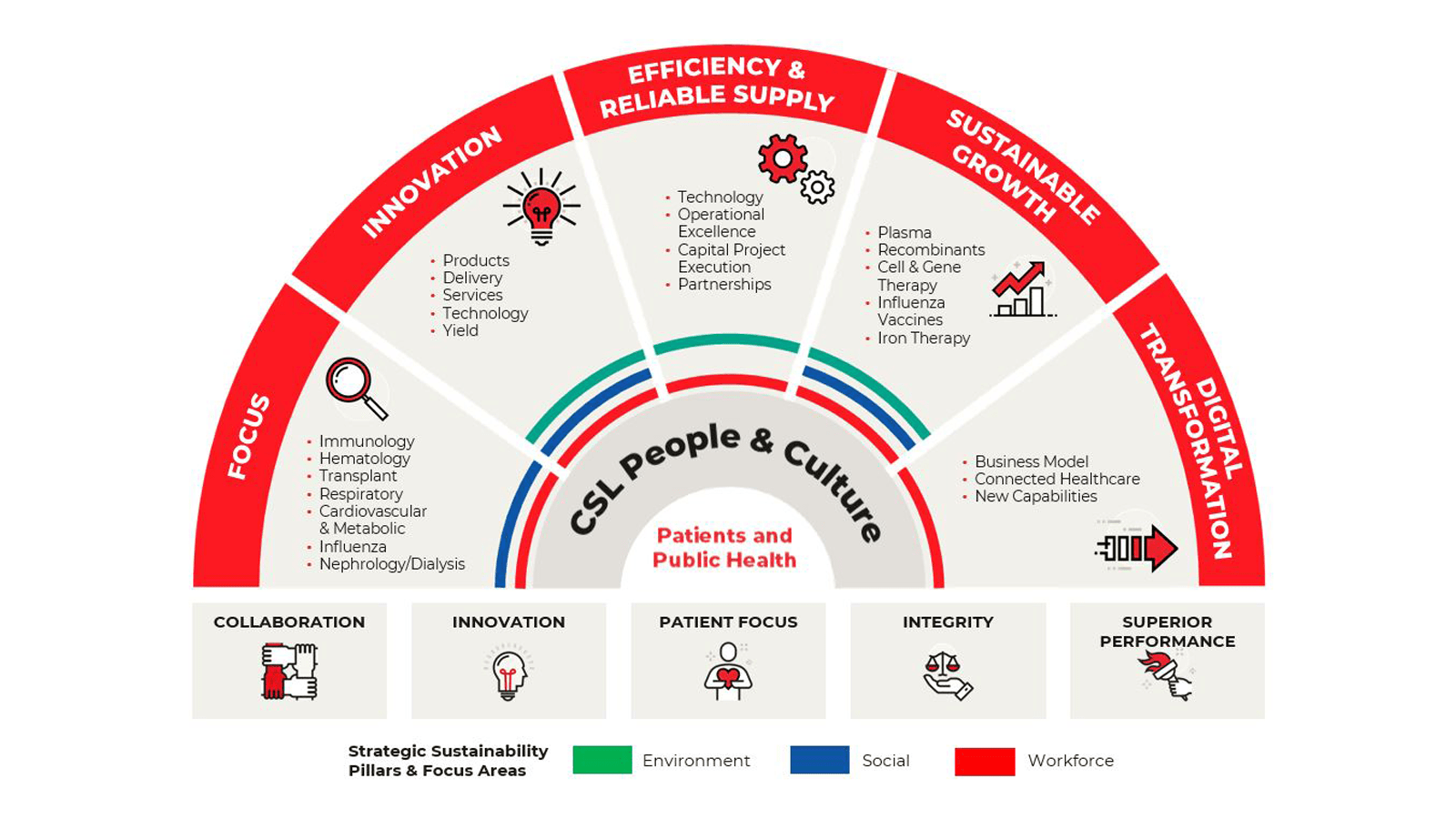We engage our patients, end-consumers and other stakeholders regularly to better understand the issues that are most important to them. We also periodically undertake a formal materiality assessment process that guides us on the current and emerging sustainability-related topics that are most significant to our operations, and, in turn, informs our sustainability strategy.
Stakeholder Engagement
Stakeholder engagement is a foundation of our approach to sustainability, and we have identified our key stakeholders as patient groups, employees, investors, regulators, suppliers, government, healthcare professionals, plasma donors, business partners and the academic and scientific community.

Stakeholder engagement covers many different activities from the provision of information and educational material to health service providers, through to active collaboration with, and support of, patient organisations and structured dialogue with stakeholder representatives.
The table shown contains a list of our key stakeholders and their interests and the key mechanisms in which we engage with them.



 )
)


